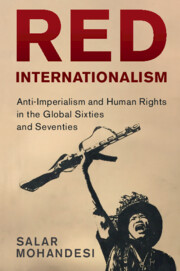3 - Revolution
Published online by Cambridge University Press: 05 February 2023
Summary
Despite coordinated international protest, the United States continued to increase its involvement in Vietnam. The escalating war, an increasingly militant global political landscape, and a new conception of anti-imperialist struggle pushed thousands of radicals to escalate their activism beyond the ideological terrain. Black radicals in the United States argued that the best way to support national liberation struggles was to wage war inside the “belly of the beast.” Latin American revolutions like Che Guevara exhorted radicals across the globe to create “two, three, many Vietnams.” And Vietnamese revolutionaries publicly welcomed this sharp radicalization of antiwar engagement. Frustrated with the limits of earlier activism, radicals in France leapt at the opportunity. Coordinating with other anti-imperialists in the North Atlantic, they tried to translate the Vietnamese struggle into their own particular contexts, and their efforts eventually lit the fuse that set off the explosive events of May 1968. In this way, the Vietnam War made May ’68 possible. May itself, radicals thought, was nothing other than another front in the revolutionary wave led by Vietnam. And just as Vietnamese revolutionaries inspired the French, the events of May ’68 inspired radicals elsewhere, who in turn tried to translate May ’68 into their own political vernacular. By the end of the year, thousands of radicals across North America and Western Europe believed it was their internationalist duty to make war at home.
Keywords
- Type
- Chapter
- Information
- Red InternationalismAnti-Imperialism and Human Rights in the Global Sixties and Seventies, pp. 111 - 158Publisher: Cambridge University PressPrint publication year: 2023

